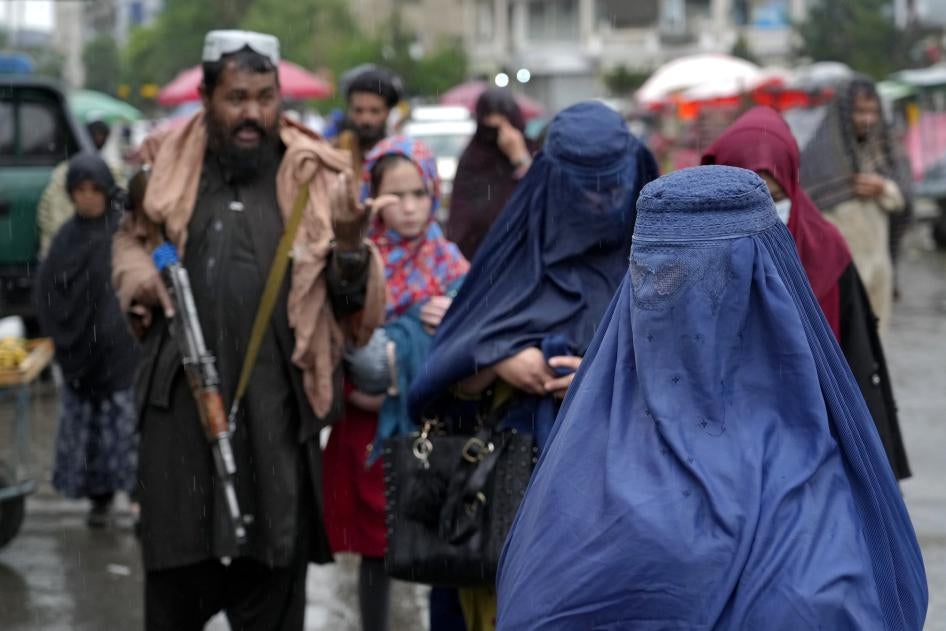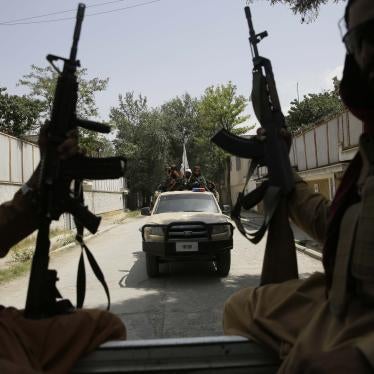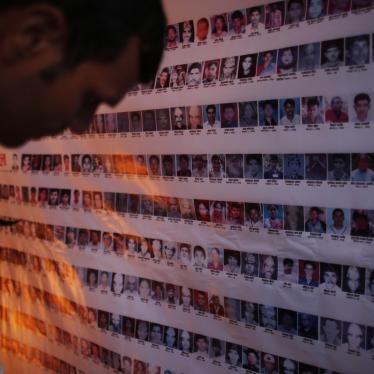When the Taliban took control of Afghanistan in August 2021, human rights activists abroad— Afghan and foreign—were devastated. But we tried to act quickly to help as best we could. We worked desperately to help friends and colleagues flee the country. We scrambled to collect information about new Taliban human rights abuses. We urged governments to maintain pressure on the Taliban to keep things from getting worse.
At the same time, we also grew deeply concerned about Afghanistan’s impending economic and humanitarian crises, set off by donors’ sudden cut-off of assistance to education, health, humanitarian, and developmental programs. We raised alarms with the U.S. and other donor countries that an economic meltdown would devastate the entire Afghan population—harms they would bear on top of Taliban abuses. We advocated for the U.S. and other donors, even in their disagreement with Taliban authorities, to reach understandings with new officials at Afghanistan’s Finance Ministry and Central Bank to allow basic economic functions.
We did this not to benefit the Taliban, but to help alleviate harm to the Afghan people.
But now the Taliban have undermined our efforts and undone the few positive steps that international donors have taken since 2021 to alleviate the humanitarian crisis. In doing so, they have set the stage for even greater catastrophe.
Several weeks ago, Taliban authorities issued new decrees stating that women were barred from higher education and from working at most nongovernmental organizations. And even when they have allowed women to continue in critical work—for instance, in the health sector—authorities have mandated they can only work if accompanied by a male family member, a nearly impossible requirement. Under an earlier March 2022 order, women and girls remain barred from all education above grade six, and other decrees have barred women from most government positions. There is no country in the world in which the human rights of women and girls are more repressed.
The new restrictions have now become a major contributing factor to Afghanistan’s humanitarian crisis. Many humanitarians have suspended their operations or even left the country, since remaining would force them to violate core humanitarian principles of impartiality, humanity, and independence.
The humanitarian meltdown couldn’t come at a worse time. The bulk of Afghanistan’s population has been suffering from food insecurity and malnutrition for well over a year. Twenty million people are now in either crisis or emergency levels of acute food insecurity, including more than 6 million on the brink of famine-like conditions. Almost 900,000 children and 800,000 pregnant and lactating women are now suffering from severe acute malnutrition. Women and girls—already enduring so many restrictions—bear the worst of this dire situation, barred from basic livelihoods and facing higher barriers to obtaining humanitarian assistance.
Responsibility for this crisis lies squarely with the Taliban, not the donors and humanitarian groups.
Can the Taliban be convinced to reverse course? They are maintaining these restrictions despite the clear economic and geopolitical consequences of doing so, and they are explicitly seeking to “justify” their policies with distorted citations of Islamic law, signaling that their positions are unchangeable. They are also making blatantly misogynistic statements about the status of women in society as secondary or subservient to men, while rebuffing repeated pleas to change direction from multiple United Nations bodies and agencies, leaders of other Muslim-majority countries like Turkey and Saudi Arabia, and the 57-nation Organisation of Islamic Cooperation (OIC) and its International Islamic Fiqh Academy. International unanimity condemning Taliban restrictions needs to be maintained for any hope to remain for significant changes in their position.
Regional and multilateral leaders should lead the way, not only the OIC but also Japan as chair of the G7, Indonesia and Malaysia as regional leaders in Asia, and G20 countries like India, the current G20 chair. Even China and Russia should be pressed to maintain the condemnation. Diplomats have told us that privately both governments have raised concerns with Taliban leaders about their policies on women’s rights, and both agreed to key U.N. Security Council statements on Taliban restrictions. All U.N. member countries should voice strong support for the U.N. in negotiating with the Taliban on these issues.
The first step is for the Taliban to end restrictions on women working at humanitarian agencies and as teachers, health care workers, and civil servants. They also need to end restrictions on woman and girls attending secondary school and universities. Ultimately, they need to reverse all their measures restricting women’s rights, each of which violates pledges they made before taking power—to other countries, the U.N., and even to us at Human Rights Watch.
No country can function with half its adult population locked up at home. That is what the whole world needs to communicate to the Taliban: allowing Afghans to fully and freely exercise their human rights is not only a moral necessity and a legal obligation, it is critical for Afghanistan’s future. Afghanistan cannot recover from its massive crises unless its entire population is free.










